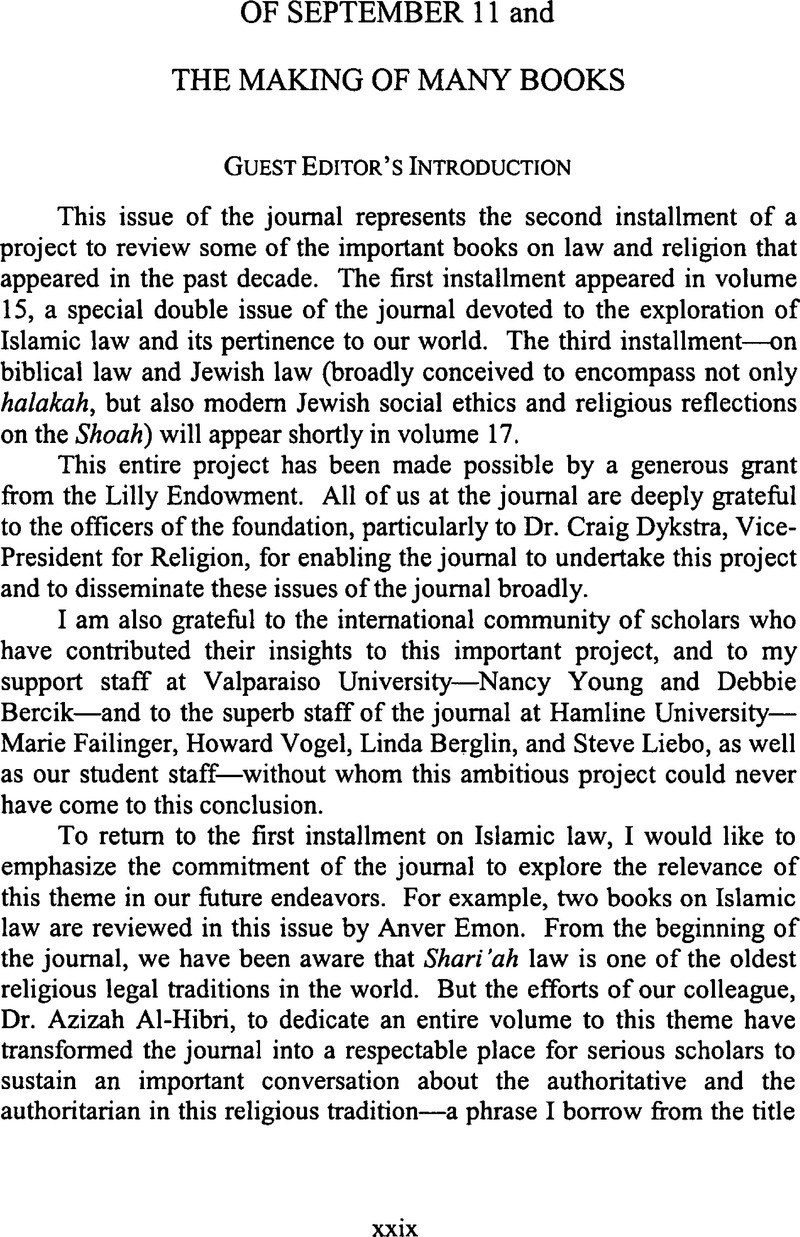No CrossRef data available.
Published online by Cambridge University Press: 24 April 2015

1. See Fadl, Khaled Abou El, The Authoritative and Authoritarian in Islamic Discourses, reviewed in 15 J. L. & Relig. 397Google Scholar. See also Vining, Joseph, The Authoritative and the Authoritarian (U. of Chi. Press 1986)Google Scholar.
2. Laycock, Douglas, Continuity and Change in the Threat To Religious Liberty: The Reformation Era and the Late Twentieth Century, 80 Minn. L. Rev. 1047, 1052–1053 (1996)Google Scholar.
3. See Fadl, Khaled Abou El, Introduction, in And God Knows the Soldiers: The Authoritative and Authoritarian in Islamic Discourses 1 (U. Press of Am. 2001)Google Scholar; Fadl, Khaled Abou El, The Place of Tolerance in Islam: On reading the Qur'an-and misreading it, 26 Boston Rev. 34–36 (12 2001/01 2002)Google Scholar; Fadl, Khaled Abou El, Islam and the Theology of Power, 221 Middle E. Rpt. 28–33 (Winter 2001)CrossRefGoogle Scholar.
4 ‘Islam is Peace’ Says President, Remarks of President Bush at Islamic Center of Washington, D.C., 09 17, 2001. (http://www.whitehouse.gov/news/releases/2001/09/20010917-11.html)Google Scholar.
5. English Rendering of President General Pervez Musharraf's Address To the Nation, Jan. 12, 2002. (http://www.pak.gov.pk/public/President address.htm).
6. Runciman, Steven, 3 A History of the Crusades 480 (Cambridge U. Press 1954)Google Scholar.
7. Berman, Harold J., The Interaction of Law and Religion 24 (Abingdon 1974)Google Scholar; for a discussion of the Court's case law on the Religion Clause of the First Amendment, see id. at 140-141. See also Berman, Harold J., Faith and Order: The Reconciliation of Law and Religion 8–20 (Scholars Press 1993)Google Scholar.